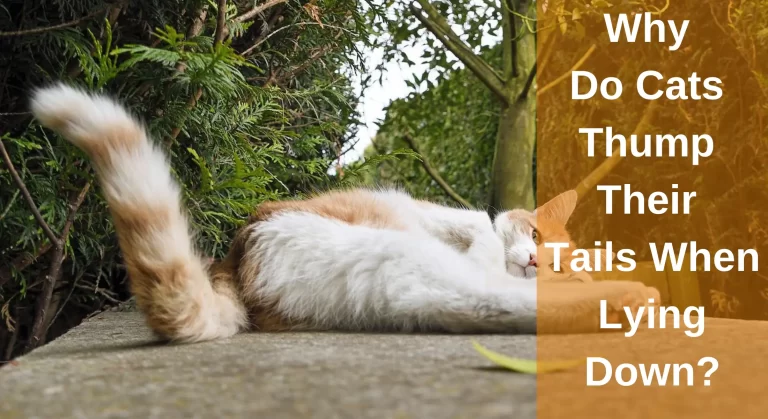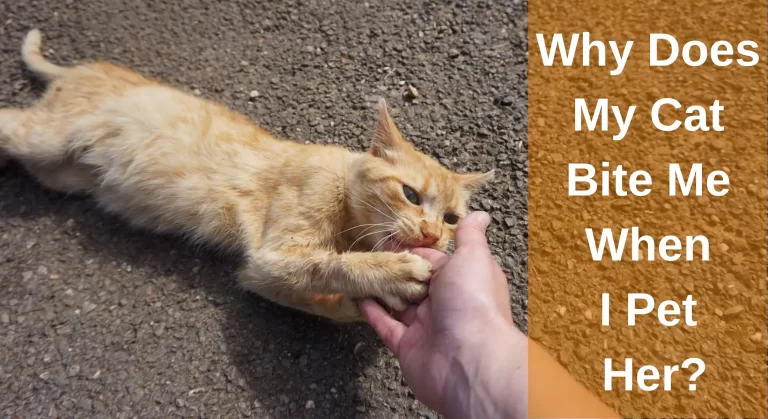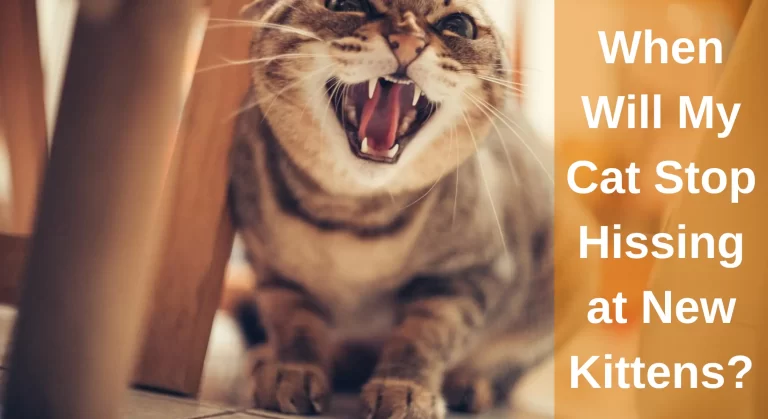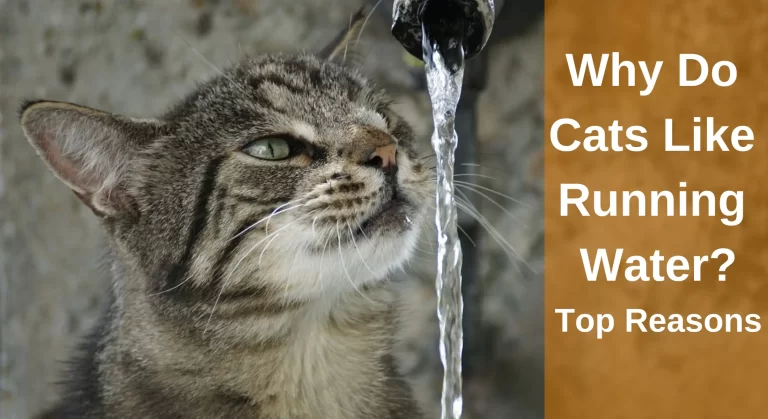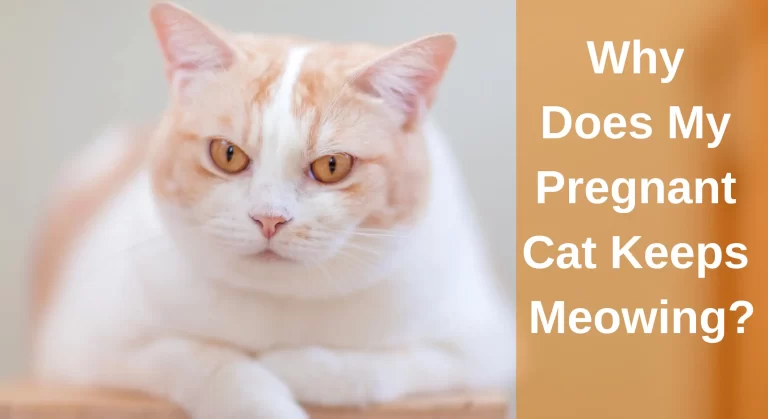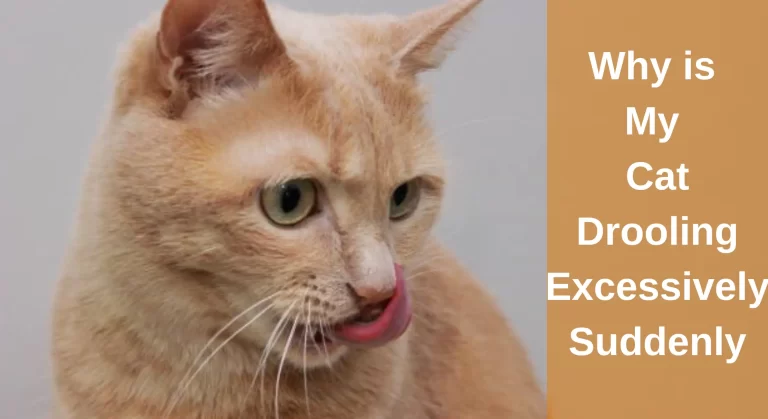Why Do Mother Cats Attack Their Older Kittens? [Answered]
The extent to which mama cats defend their young may even become overwhelming. You might be astonished and perplexed when you see a mama cat attacking her kittens. Most cat owners become worried and frequently ask why mama cat attack their little kittens and does she attack their kittens intentionally.
A mother cat might attack her kittens for various reasons. These reasons could be due to disciplining them, teaching them how to hunt, protecting them from other cats, hormonal imbalances, not having enough food or space, or not being socialized properly. Sometimes, the mother cat might feel jealous or scared, and even if the kittens are sick, she may end up attacking them. Additionally, if the mother cat becomes tired of motherhood or if the kittens become a burden, she may attack them to drive them away.
Although there is a plethora of reasons that justify this behavior, it’s crucial to keep in mind that every cat is different and might have her own motives for harming her offspring. To help you quickly identify the reasons behind mother cats attacking, we’ve covered some of the most prevalent reasons in this article. Moreover, we’ve also mentioned the best and workable solutions to resolve this issue.
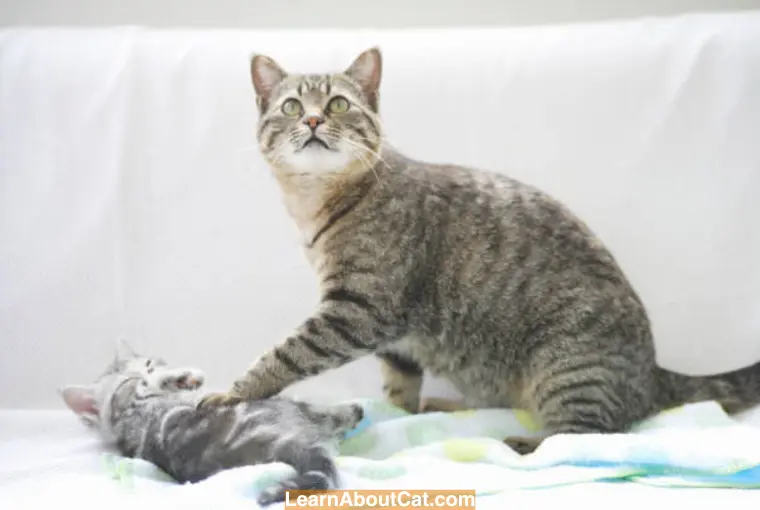
Can a Mother Cat Attack Her Kittens? Is it Normal For Mother Cats to Attack Their Kittens?
Fighting between mother cats and their young is uncommon. A mother cat purposely harming her kittens is quite uncommon. The majority of the time, mother cats are quite possessive of their kittens and will take considerable measures to ensure their protection and well-being.
Yet, there are certain situations in which a mother cat could act violently against her kittens. For instance, if a kitten is unwell or sick, the mother can feel that it won’t survive and cease taking care of it. She might even refuse the kitten. A mother cat might also act aggressively to regulate a kitten’s behavior if she sees it as dangerous, such as when it bites or scratches too forcefully.
Keep an eye on things carefully and act if required to safeguard the kittens when a mother cat acts aggressively towards her young. For guidance on how to handle a cat, it’s also a best practice to talk with a vet or an expert in animal behavior.
Check Out: Can Cats Kill Each Other? What You Need To Know
Reasons Why Do Mother Cats Attack Their Older Kittens?
A mother cat might attack her older kittens for different reasons. Maybe she feels threatened and wants to protect them. Or she could be trying to reduce the number of her offspring because she feels overwhelmed. Whatever the reason, it’s important to understand it to prevent such behavior. I’ve listed all the possible reasons for a mother cat’s attacking behavior.
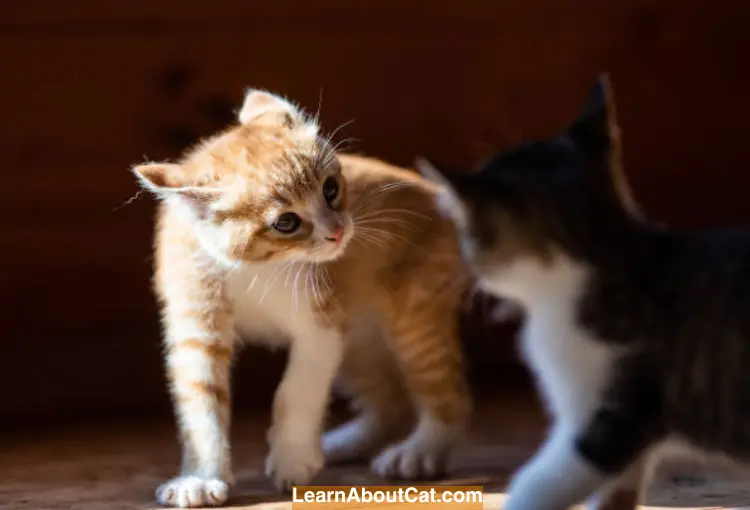
1. Kittens Become Mature and Independent
A mother may feel at some point that her kitties are no longer newborns and should be allowed to care for themselves. She can now begin gently ignoring them in several ways. She makes them feel that they are no longer needed by her.
The mother typically allows the kittens to stay with her if they are quite small. But when she believes they are mature and are able to care for themselves, she pushes them away from her by attacking them. Cats usually behave in this way when their young are nearly 14 weeks. The kittens will attempt to force their mama cat away when they’re grown up. This will force their loving, elderly mother to find a new territory.
The mama cat, who can quickly detect this hatred from her kittens, tries to approach the kittens first. Because of this, it’s probable that she will attack her elder kittens to clear some room and prevent being expelled from her area.
2. Insufficient Socializing
The absence of sociability is one possible factor in mother cats attacking their kitties. Kittens are blind and deaf at birth time, so they are fed with their mother’s milk during the initial 2 weeks of their life. The mama cat will start grooming and cleaning her babies during this period. The growth of the kitten’s socializing abilities depends on this procedure.
But if the kittens won’t learn appropriate communication and social skills during this time. Then they’re more susceptible to being attacked by their mother after their developing time because the mama cat doesn’t have sufficient spare time to look after them appropriately.
3. Mama Cat is Tired
Your mother cat has been providing 24-hour care for her young, nourishing them, making them use the bathroom, cleaning them, and teaching them how to utilize the cat litter.
But when she wants to take some rest and at that breathtaking instant her little kittens disturb her that they want milk or want to play; she may become aggressive and attacks them.
4. Issues With Hormones
Cat maternal behavior issues can result from a variety of factors. According to a study, genetic variants in cats affect a variety of motherhood behaviors.
A mother cat might not be able to nurse her kittens properly and even attack them if she lacks or has a faulty maternal-related trait. Sadly, we won’t be aware of this until her babies are delivered and she assumes the role of a mother.
Hormonal swings might also result in issues with maternal behavior. A cat may experience signs of being expecting, such as labor symptoms like cramps, even if she isn’t pregnant, as a result of hormonal changes.
The mother cat’s behavior may also exhibit comparable problems as a result of stress. Being sensitive animals, cats may be impacted by any change. In addition, compared to women who have raised kittens, first-time moms might be more susceptible to behavioral issues.
5. Mama Cat Becomes Jealous
Jealousy is another factor that contributes to your cat’s aggressive behavior towards her younger kittens. Cats are frequently showered with love and care by their caretakers while they are pregnant. You offer them a variety of premium foods and various high-end goodies.
She occupies the entire bed without any guilt. You can’t resist but hold, love, and embrace your pregnant purring companion all day as you sense the kittens inside her. She does nothing except take in all of your affection while she is pregnant.
Most cats consider it as a wish fulfilled to get the finest fresh food, to cuddle whenever they desire, and to have their dishes filled without being asked for more. Your cat gets used to this attention and care throughout this time. But after giving birth, she may start to feel neglected. This is happening because you’re too involved with the additions to your family.
Although you aren’t purposefully ignoring the mother, the reality that she was previously the center of your interest may cause her to harbor jealousy for her offspring.
The mother cat might claw and growl at her little ones. Try keeping them apart for a bit if the behavior doesn’t stop right away or intensifies. Although felines have powerful senses, the maternity ones can occasionally be a little slow.
Interesting Reading: Why Do Mother Cats Hate Their Kittens?
6. Food Scarcity
Sometimes, a mother cat may harm her babies because she isn’t getting enough food for herself. She wants to protect herself and make sure her kittens don’t get more food than she does.
This usually happens when you provide low-quality or not enough food for the mother. To avoid this, make sure you give her a high-quality, nutrient-rich meal designed specifically for breastfeeding mothers. This way, she and her kittens can stay healthy and well-nourished.
Also, Check Out: Why Is My Nursing Cat Always Hungry? [Answered]
7. Lack of Living Space
The mama cat will attack her younger babies if she thinks that she lacks sufficient space, which is among the most likely cause of such attacks.
The mama cat requires a specific big room to relax, so if she gets crowded, she may begin to fear that her kittens are occupying all the room. So, it’s essential that the mama cat will get lots of space to roam around; even if you reside in a small house.
8. Kittens Become Sick
Your mama cat may occasionally overreact and hurt her kittens when she believes there is a problem with the kitten, whether it is a sickness or a physical abnormality. She is certain that her baby has very little chance of survival because she is a mom.
Her impulses, therefore, take over, and she turns to hurt her kitten. However, if you observe a mother cat repeatedly harming her youngster, try to separate them.
Find Out More: Do Cats Inbreed? Things Cat Owners Should Know
9. Mama Cat is Frightened
It’s quite awful to see mama cat harming their young. But bear in mind what we mentioned regarding her powerful instincts. Thus, be aware that a mama cat may become hostile to her kittens if she gets offended. She may harm them to save herself when this occurs.
We’d like to believe that mother would constantly choose to keep her kittens safe, but that isn’t always the case.
This behavior may be brought on by a cat or other predator that poses a danger to her, or by a loud, unfamiliar noise that terrifies her. Even if there are other explanations, this circumstance is extremely typical, particularly if the cats are feral.
10 Mama Cat is Hungry
We are aware that our animal friends cannot endure prolonged hunger. They frequently need to be fed. They would probably respond that they are all hungry if you asked them.
A mother of younger kittens who are starving and worn out and her young kittens only desire to enjoy and leap around. Being a mother cat can undoubtedly be demanding and she may become hungry. Her energy levels might be drastically depleted by these small thugs. The mama cat must therefore occasionally be fed with a yummy meal.
She considers it much easier to eat in silence without interruption from her kittens. She prefers solitude and environments free of interruptions, misbehavior, or childish screaming. But if any kitten comes to her place while she’s eating, she may turn around and claw at them so that her kittens return to their place and let her eat peacefully.
11. Playtime
Sometimes, things are simply not as they seem. You could be mistaken if you believe you have seen a mother cat chasing away her elder kittens. Possibly what you observed was not connected to the mama cat cruelly beating and clawing her babies.
A cat mom will frequently play with her young since this educates them valuable lessons about life. Hence, mama cats who harm their younger kittens may be helping them. The mother cat may choose to interact with her kittens if she’s feeling playful. They may bite, claw, and punch each other when playing.
You shouldn’t be concerned, though, as these attacks aren’t intended to pierce the skin or cause even the tiniest discomfort. So, it’s possible that the mama cat isn’t assaulting her younger kittens but is instead engaging in playful interaction with them.
What Should I Do If Mother Cat Attacks its Kittens?
Inspect to see whether the mama cat is leaking blood when she hisses or claws at her kittens. Mother cats aren’t always gentle and kind when it comes to training, therefore it’s usual for her to growl or attack her kittens as long as the bites don’t cause any skin damage.
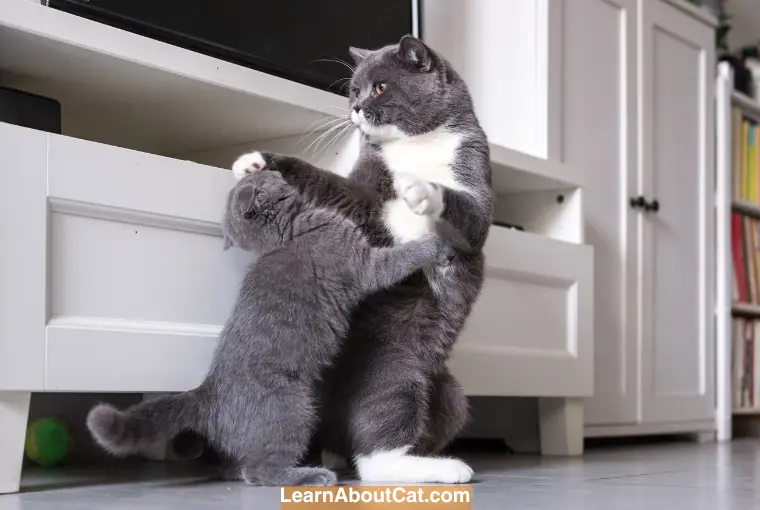
- Remove Yourself from the Situation: If you are present during the aggressive behavior, make sure to keep a safe distance from the mother cat to avoid any potential harm to yourself.
- Do Not Intervene Directly: Avoid physically intervening in the altercation between the mother cat and her kittens, as this can escalate the situation further. Let the mother cat have her space, but closely monitor the situation from a safe distance.
- Separate the Mother from the Kittens: If possible, safely separate the mother cat from her kittens to prevent further aggression. Provide a separate and secure space for the kittens, away from the mother’s reach.
- Seek Professional Advice: Check your kittens carefully after separating them from the mama cat. However, if the skin is damaged, you should notify your veterinarian right away to discuss the situation because you could have to take care of the abandoned kittens by yourself. They can provide expert guidance and advice on how to handle the situation appropriately.
- Comfortable Place for Mothe Cat: Make a new home for the mother cat in the most silent area of your apartment. If things don’t become worse, make sure that mother has a quiet resting place because aromas, noises, and a large number of human activities in the area might irritate her and even make her attack her young.
- Ensure the Kittens’ Safety: While the mother cat’s nurturing presence is crucial for the kittens’ well-being, if her aggression persists, you may need to take on the responsibility of caring for the kittens temporarily. This can involve providing them with proper nutrition, warmth, and stimulation.
- Reintroduce Gradually: If the aggression was a result of stress or other external factors, you can try reintroducing the mother to her kittens gradually once the situation has calmed down. Observe their interactions closely to ensure the kittens’ safety.
How Do I Stop My Older Cat from Attacking My Kitten?
If the older cat aggressively attacks your kitten and if the bite is puncturing the skin, consult your veterinarian and keep the pets apart in the interim. You might also attempt to reintroduce them gradually. Separate the kitten in the room and place the elder cat in a cage with some cozy blankets.
Give the elder cat a treat when they arrive, and during the next two to three days, attempt several “introductory sessions” before allowing them to interact without the box.
When is the Best Age to Separate Kittens from Their Moms?
Although some kitties start consuming solid foods as soon as 4 weeks, still you’ve had to wait till the kitten reaches 10 to 12 weeks of age. Moreover, most vets say that you can separate kittens from their mother between the ages of 7 and 8 weeks, but it’s rarely a good idea to do so.
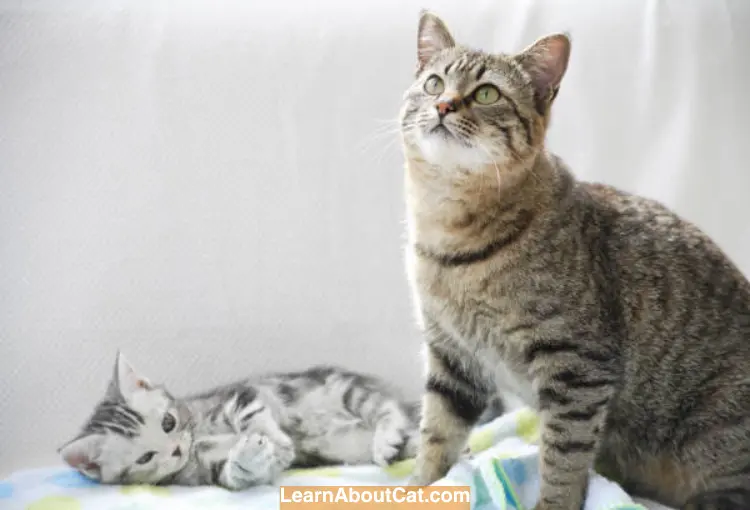
As you know, kitties are still growing at that stage, and you should consider their social abilities. Interacting with their mother and siblings while they are kitties trains them skills to get along with other pets. For example, they understand how forcefully to bite and when to release their claws.
To ensure that they become robust, healthy, and socially adept when they leave, it is therefore ideal to let them spend some extra time with their mother.
Why Does My Cat Chase My Kitten?
Even though biting is included, it’s usually only a case of marking territory. Cats frequently give fast bites that prick but don’t puncture the body to signal other cats its dominance.
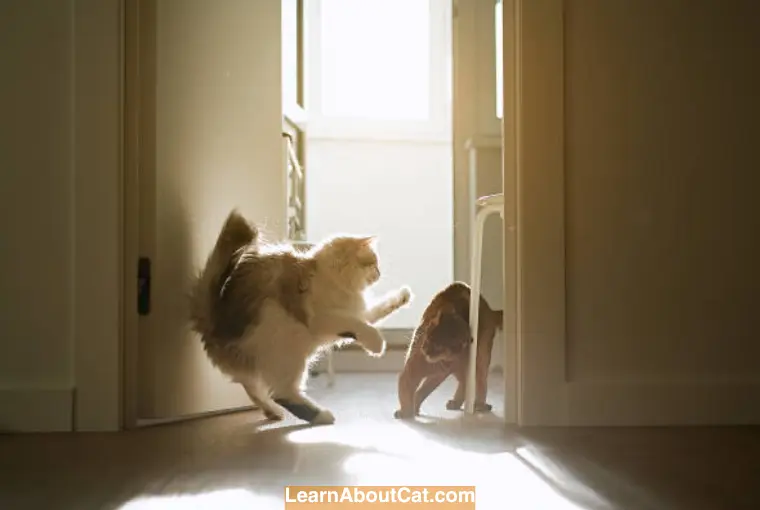
The introduction of brand-new toys can assist your cat get rid of its excess power, or you can attempt to create good connections between the mother cat and the newborn kitten. Your cat may just be bored. Trying to play with both, giving them lots of food, and possibly even bringing a comb for brushing them all help achieve this.
Since you’ll be around, you have the confidence that nobody is getting injured, even if it appears to be harsh, this may assist the old cat to develop some pleasant connections with the kitten.
Frequently Asked Question
Do mother cats miss their kittens when they are gone?
Mama cat will undoubtedly miss her babies for some time, but it won’t be as painful as it might be for a person. This is due to the fact that the mom was given the motivation by the environment to nurture the kittens, give them the best chance of independence and survival, and then release them into the wild.
Why is my mother’s cat suddenly aggressive towards kittens?
There may be several causes for a mother cat to become abruptly hostile against her kittens. To secure the kittens and control the issue effectively, it is critical to figure out what’s wrong. The reasons are mentioned below:
Kitties’ illness
Stress or hormonal imbalance
Lack of social interaction
Kittens become mature
Overburden of litter
How long does maternal aggression last in cats?
Based on the source and degree of the violence, maternal aggression in felines can endure a variety of times. The duration of the violence can vary; in some circumstances, it’ll last a few hours or weeks. However, in worse cases, it may extend over many months.
If the mama cat’s injury or disease is the cause of the hostility, it may stop after the underlying problem is resolved and she feels better. When the cause is anxiety or stress, it is reduced when the cause of stress was eliminated.
How do I know if my cat is hurting my kitten?
If you are unfamiliar with cat behavior, it may be challenging to determine whether a cat is inflicting harm on a kitten. Yet there are a few warning indications you may watch out for that might mean the mother cat is mistreating or harming her young. Observe the following things:
If a kitten is screaming out strongly or regularly, it means that its mother cat is injuring it.
Biting or claw marks may indicate that the mother cat is behaving aggressively with the kitten.
If a kitten runs away from its mom or tries to conceal itself from her, it could mean that it is scared of the mother or that she has harmed it.
Why does my pregnant cat attack its older kitty?
This is primarily due to two factors. First of all, the kitten is grown now, and the mother will not allow the elder cat to return for nursing because she is again expecting. Second, the mama cat becomes naturally more protective as the newborn litter approaches, thus she may attack her older kitten to go away.
When will a mother cat reject her kittens?
Mother cats may reject their kittens for various reasons. Some of the common reasons include health issues in the kittens, stress or disturbance in the environment, lack of maternal instincts, inexperience, birth complications, previous negative experiences, and intervention by humans. Monitoring the mother cat’s behavior and providing appropriate care can help prevent or address rejection issues.
Will a mother cat fight to protect her kittens?
Absolutely! A mother cat’s instinct to protect her kittens is incredibly strong. If she perceives a threat or danger to her offspring, she will bravely defend them. Mother cats may resort to physical defense, vocal warnings, fierce posturing, leading intruders away, or even relocating their kittens to keep them safe. Respecting and supporting a mother cat’s protective behavior is essential for the well-being of both the mother and her kittens.
Will the mother cat’s aggression towards her older kittens last forever?
No, as the kittens continue to grow and become more independent, the mother’s aggressive behavior typically subsides.
Can spaying the mother cat prevent aggressive behavior towards her older kittens?
Spaying the mother cat can help regulate hormones and reduce aggressive tendencies, but it may not entirely eliminate such behavior.
Final Verdict
You’ll have to ensure your cat has a secure, peaceful area to give birth to and nurture her babies, with food and drink nearby. When the mother cat has delivered kittens, you should make that she gets all the resources, care, and love that she’s having during pregnancy time.
Try to separate the kittens after 10-12 weeks so the mother cat will become comfortable and didn’t become stressed out due to the overburden of litter.
Any change in your behavior makes the mother cat angry and therefore she may even harm their kittens. Moreover, if your feline is a first-time mom make sure she is adjusting comfortably to her new position as a mother. Look for any stress or hormonal imbalance and if the mother cat is under stress you should get in touch with a doctor or an animal rescue. The earlier your cat receives assistance, the healthier!
Who is Isabella?
My name is Isabella, and I am a dedicated and knowledgeable cat enthusiast. With years of experience caring for cats and a deep love for felines, I made a mission to help other cat lovers navigate the challenges of cat ownership.

